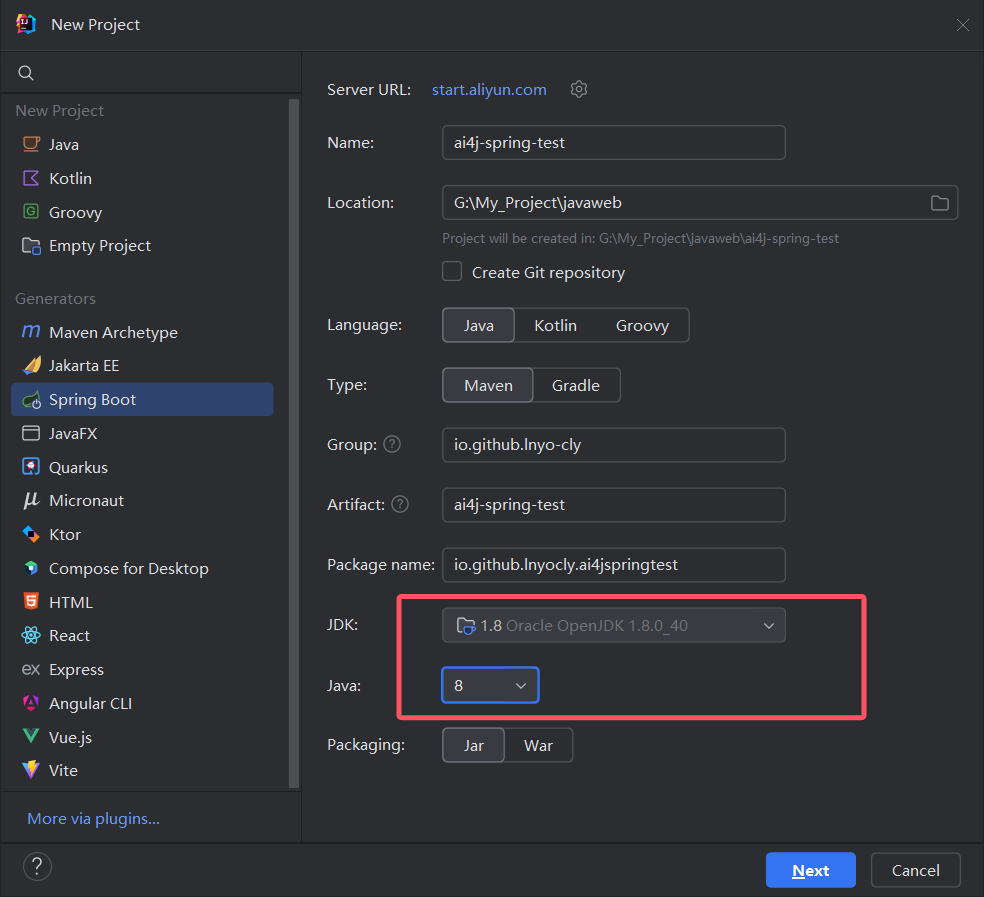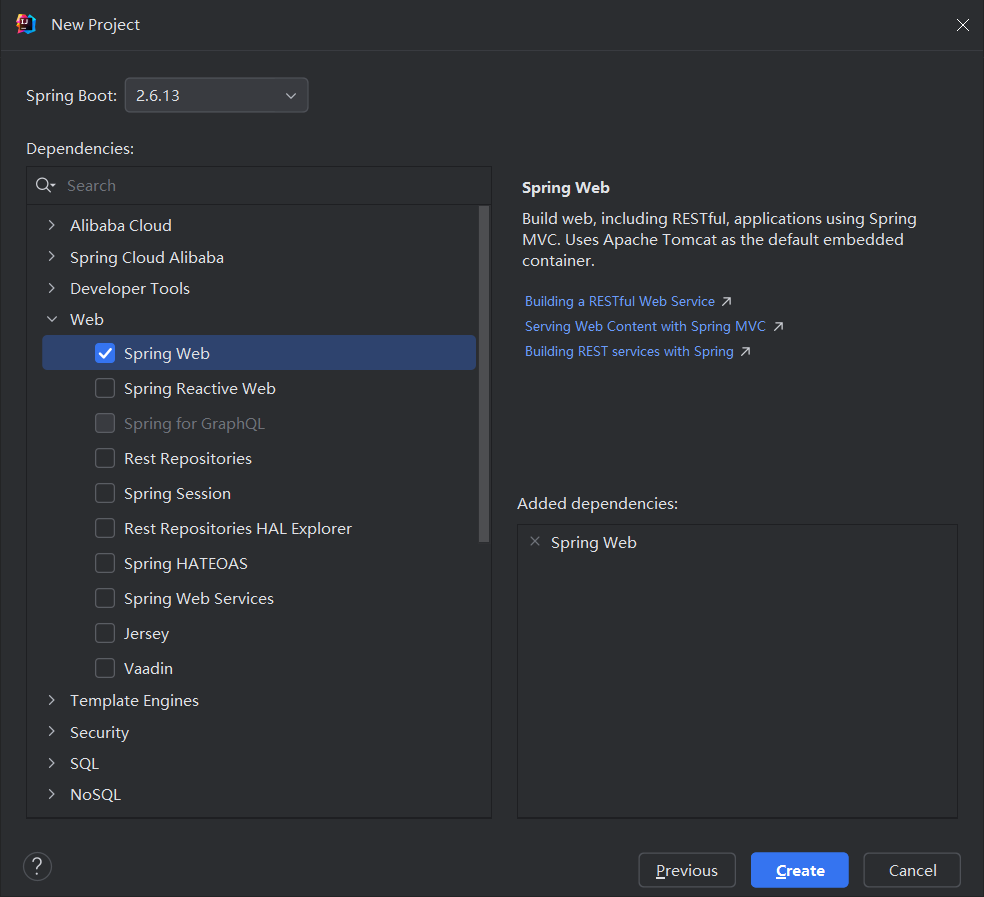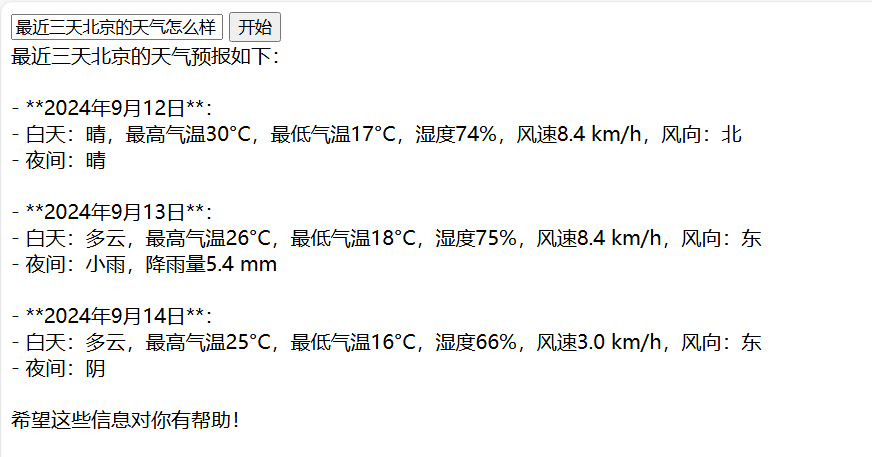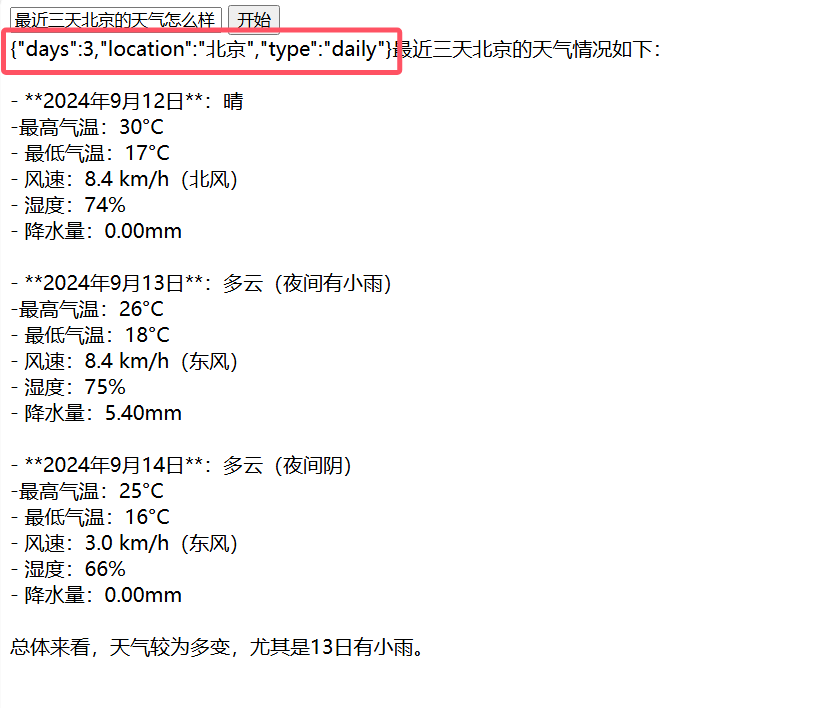Java快速接入deepseek、qwen2.5、llama3.2等Ollama平台开源大模型
使用AI4J快速接入qwen2.5、llama3.1等Ollama大模型
本博文给大家介绍一下如何使用AI4J快速接入Ollama平台开源大模型,如qwen2.5、llama3.1等等,并且如何实现流式与非流式的输出,以及对函数调用的使用。
介绍
由于SpringAI需要使用JDK17和Spring Boot3,但是目前很多应用依旧使用的JDK8版本,所以使用可以支持JDK8的AI4J来接入OpenAI大模型。
AI4J是一款JavaSDK用于快速接入AI大模型应用,整合多平台大模型,如OpenAi、Ollama、智谱Zhipu(ChatGLM)、深度求索DeepSeek、月之暗面Moonshot(Kimi)、腾讯混元Hunyuan、零一万物(01)等等,提供统一的输入输出(对齐OpenAi)消除差异化,优化函数调用(Tool Call),优化RAG调用、支持向量数据库(Pinecone),并且支持JDK1.8,为用户提供快速整合AI的能力。
ollama
Ollama是一个开源的大模型平台,提供了多种大模型,如qwen2.5、llama3.1等等,支持多种功能,如聊天、问答、视觉等等。
安装ollama
进入ollama官网

下载之后傻瓜式安装即可。
安装开源大模型qwen2.5


我们可以在官网,找到模型列表,选择我们想要的模型,这里以qwen2.5为例。

选择需要的参数模型,复制命令,打开cmd窗口执行即可。

这里我已经安装过了,没有下载的会自动下载。
快速使用
目前较多的应用场景为Spring应用,而AI4J接入SpringBoot应用也是非常简单的,本篇博文先带着大家为SpringBoot应用集成Ollama服务,并且可以兼容原本Openai应用。
如果之前搭建过openai的应用,比如Java快速接入OpenAi,那么你可以进行无缝的接入。
没有也没关系,下文带你从零开始搭建使用。
创建SpringBoot项目


这里以JDK1.8为例创建SpringBoot2项目,当然你也可以创建JDK17、SpringBoot3。
引入AI4J依赖
<!-- Spring应用 -->
<dependency>
<groupId>io.github.lnyo-cly</groupId>
<artifactId>ai4j-spring-boot-starter</artifactId>
<version>1.3.0</version>
</dependency>
注意版本,尽量选择最新的版本。
如果你使用阿里源无法引入,可能是阿里云镜像还没有同步。
配置application.yml
这里大家只需要配置baseurl即可

如果你在本地运行,甚至不需要修改任何配置,直接默认即可。
搭建聊天服务Controller
普通输出
下面是一个小的demo演示:
@RestController
public class OpenAiController {
// 注入Ai服务
@Autowired
private AiService aiService;
@GetMapping("/chat")
public String getChatMessage(@RequestParam String question) throws Exception {
// 获取OLLAMA的聊天服务
IChatService chatService = aiService.getChatService(PlatformType.OLLAMA);
// 创建请求参数
ChatCompletion chatCompletion = ChatCompletion.builder()
.model("qwen2.5:7b")
.message(ChatMessage.withUser(question))
.build();
System.out.println(chatCompletion);
// 发送chat请求
ChatCompletionResponse chatCompletionResponse = chatService.chatCompletion(chatCompletion);
// 获取聊天内容和token消耗
String content = chatCompletionResponse.getChoices().get(0).getMessage().getContent();
long totalTokens = chatCompletionResponse.getUsage().getTotalTokens();
System.out.println("总token消耗: " + totalTokens);
return content;
}
}

实现stream流式输出(打字机效果)
编写stream.html:
<!DOCTYPE html>
<html>
<head>
<meta charset="UTF-8">
<title>Stream Example</title>
</head>
<body>
<input id="question" type="text" placeholder="输入需要提问的问题"/>
<button id="startButton">开始</button>
<div id="output"></div>
<script>
const input = document.getElementById("question");
const outputDiv = document.getElementById('output');
const startButton = document.getElementById('startButton');
async function getResponse(){
const question = input.value;
const resp = await fetch("/chatStream" + "?question=" + question,{
method: 'GET'
})
const reader = resp.body.getReader();
const textDecoder = new TextDecoder();
while (1){
const { done , value } = await reader.read()
if(done) break;
const str = textDecoder.decode(value);
outputDiv.innerText += str;
console.log(str)
}
}
startButton.addEventListener("click", getResponse)
</script>
</body>
</html>
向controller中添加stream接口:
@GetMapping("/chatStream")
public void getChatMessageStream(@RequestParam String question, HttpServletResponse response) throws Exception {
// 中文乱码问题
response.setCharacterEncoding("UTF-8");
// 获取OLLAMA的聊天服务
IChatService chatService = aiService.getChatService(PlatformType.OLLAMA);
// 创建请求参数
ChatCompletion chatCompletion = ChatCompletion.builder()
.model("qwen2.5:7b")
.message(ChatMessage.withUser(question))
.build();
PrintWriter writer = response.getWriter();
// 发送chat请求
SseListener sseListener = new SseListener() {
@Override
protected void send() {
writer.write(this.getCurrStr());
writer.flush();
System.out.println(this.getCurrStr());
}
};
chatService.chatCompletionStream(chatCompletion, sseListener);
writer.close();
System.out.println(sseListener.getOutput());
}

注意:上面只是一个简单的示例,你也可以使用其它方法,比如:
@GetMapping("/chatStream")
public ResponseBodyEmitter getChatMessageStream(@RequestParam String question) {
ResponseBodyEmitter emitter = new ResponseBodyEmitter();
// 获取OLLAMA的聊天服务
IChatService chatService = aiService.getChatService(PlatformType.OLLAMA);
// 创建请求参数
ChatCompletion chatCompletion = ChatCompletion.builder()
.model("qwen2.5:7b")
.message(ChatMessage.withUser(question))
.build();
Executors.newSingleThreadExecutor().submit(() -> {
try {
SseListener sseListener = new SseListener() {
@Override
protected void send() {
try {
emitter.send(this.getCurrStr());
System.out.println(this.getCurrStr()); // 打印当前发送的内容
} catch (IOException e) {
emitter.completeWithError(e);
}
}
};
// 发送流式数据
chatService.chatCompletionStream(chatCompletion, sseListener);
// 完成后关闭连接
emitter.complete();
} catch (Exception e) {
emitter.completeWithError(e);
}
});
return emitter;
}
小Tips
如果你发现流式输出很卡(一块一块或者一整块内容输出),但是后端正常逐字输出。除了一些nginx关闭缓存的配置之外,您也可以试试添加Thread.sleep(10)
SseListener sseListener = new SseListener() {
@Override
protected void send() {
writer.write(this.getCurrStr());
writer.flush();
System.out.println(this.getCurrStr());
try {
Thread.sleep(10);
} catch (InterruptedException e) {
throw new RuntimeException(e);
}
}
};
实现函数调用
首先我们需要编写一个函数,以天气预报为例子:
@FunctionCall(name = "queryWeather", description = "查询目标地点的天气预报")
public class QueryWeatherFunction implements Function<QueryWeatherFunction.Request, String> {
@Override
public String apply(Request request) {
final String key = "你的key";
// https://api.seniverse.com/v3/weather/hourly.json?key=your_api_key&location=beijing&start=0&hours=24
// https://api.seniverse.com/v3/weather/daily.json?key=your_api_key&location=beijing&start=0&days=5
String url = String.format("https://api.seniverse.com/v3/weather/%s.json?key=%s&location=%s&days=%d",
request.type.name(),
key,
request.location,
request.days);
OkHttpClient client = new OkHttpClient();
okhttp3.Request http = new okhttp3.Request.Builder()
.url(url)
.get()
.build();
try (Response response = client.newCall(http).execute()) {
if (response.isSuccessful()) {
// 解析响应体
return response.body() != null ? response.body().string() : "";
} else {
return "获取天气失败 当前天气未知";
}
} catch (Exception e) {
// 处理异常
e.printStackTrace();
return "获取天气失败 当前天气未知";
}
}
@Data
@FunctionRequest
public static class Request{
@FunctionParameter(description = "需要查询天气的目标位置, 可以是城市中文名、城市拼音/英文名、省市名称组合、IP 地址、经纬度")
private String location;
@FunctionParameter(description = "需要查询未来天气的天数, 最多15日")
private int days = 15;
@FunctionParameter(description = "预报的天气类型,daily表示预报多天天气、hourly表示预测当天24天气、now为当前天气实况")
private Type type;
}
public enum Type{
daily,
hourly,
now
}
}
其中有三个核心注解:
@FunctionCall:标识这个类为一个函数@FunctionRequest:标识为该类为函数的请求类@FunctionParameter:标识为函数的具体参数
接下来稍微修改下刚刚编写的Stream实现函数:
@GetMapping("/chatStream")
public void getChatMessageStream(@RequestParam String question, HttpServletResponse response) throws Exception {
// ......
// 创建请求参数
ChatCompletion chatCompletion = ChatCompletion.builder()
.model("qwen2.5:7b")
.message(ChatMessage.withUser(question))
.functions("queryWeather") // 这里传入刚刚我们定义的函数名称即可
.build();
// ......
}

如果想要知道函数调用的参数,只需要在刚刚的代码中,添加下面这一行即可:
sseListener.setShowToolArgs(true);

更换其它平台
细心的你可能已经发现,我们在创建chatService的时候传入了PlatformType.OLLAMA,如果我们想要更换其它平台,只需要更换PlatformType即可。如果你不懂,那下篇博文再详细的说说
IChatService chatService = aiService.getChatService(PlatformType.OLLAMA);
如果你已经看过上一篇博客Java快速接入OpenAi,那么聪明的你已经发现共同之处了。
其它功能
篇幅有限,其它功能使用,下篇再讲
更多推荐
 已为社区贡献1条内容
已为社区贡献1条内容










所有评论(0)